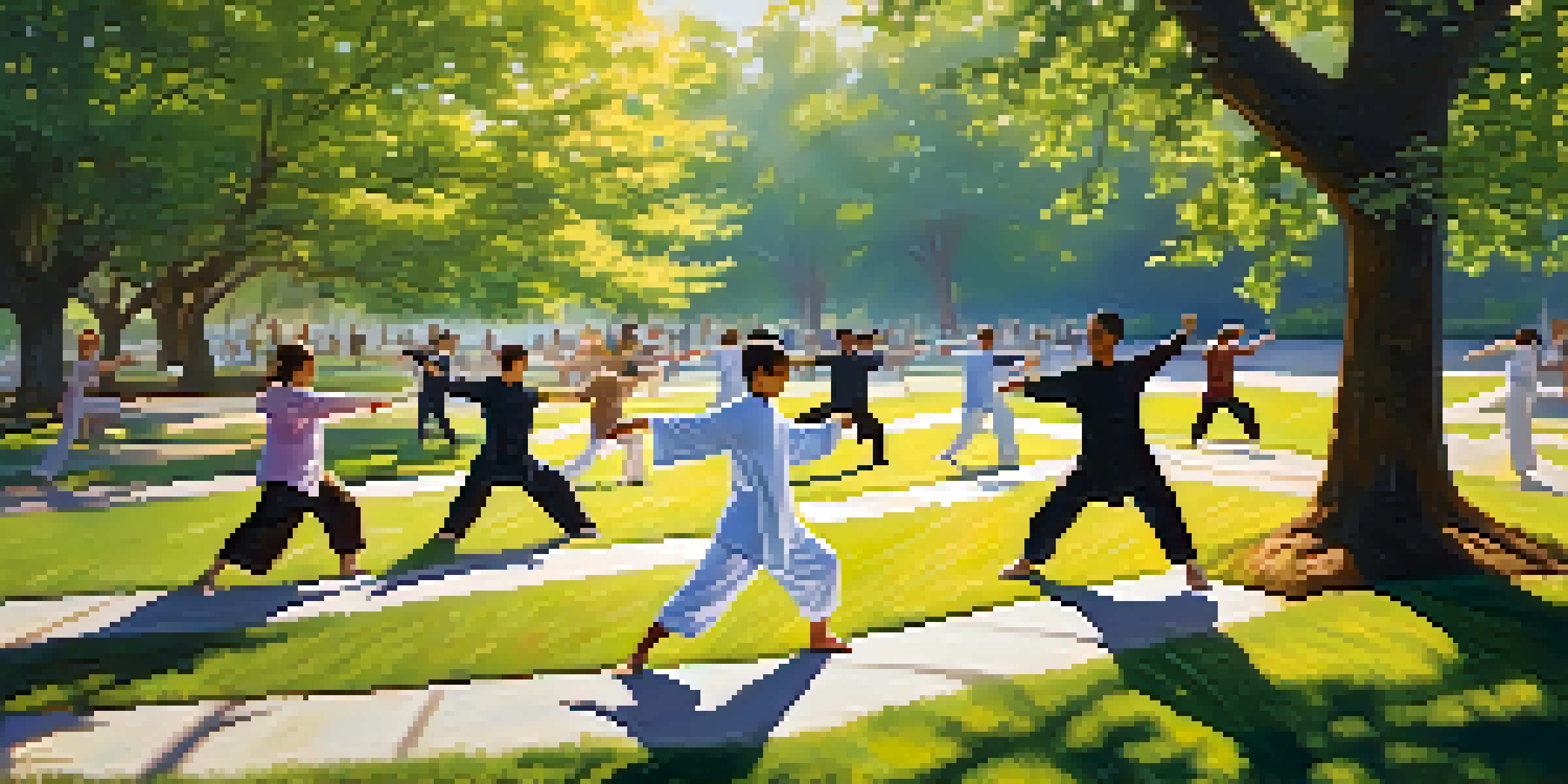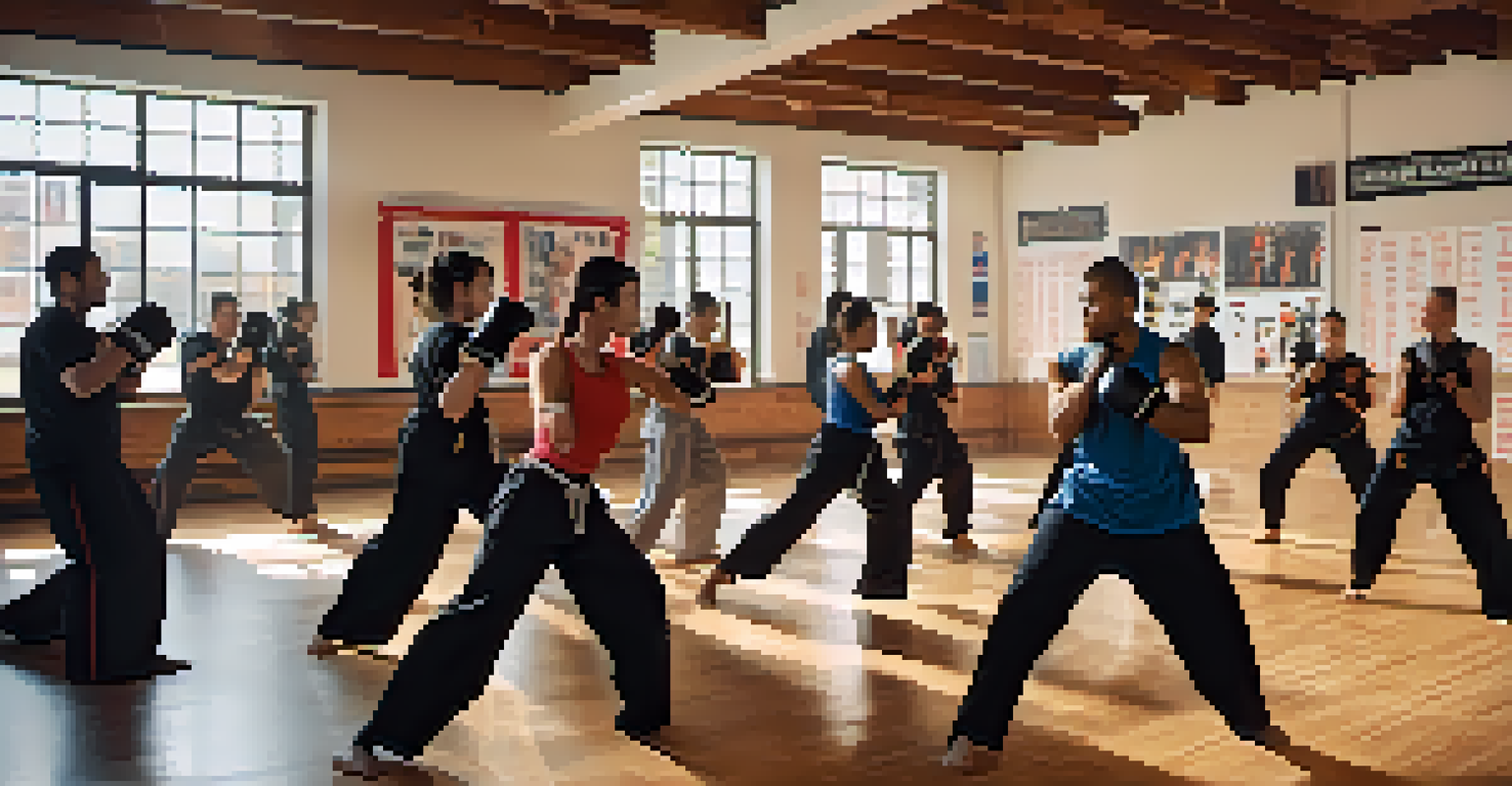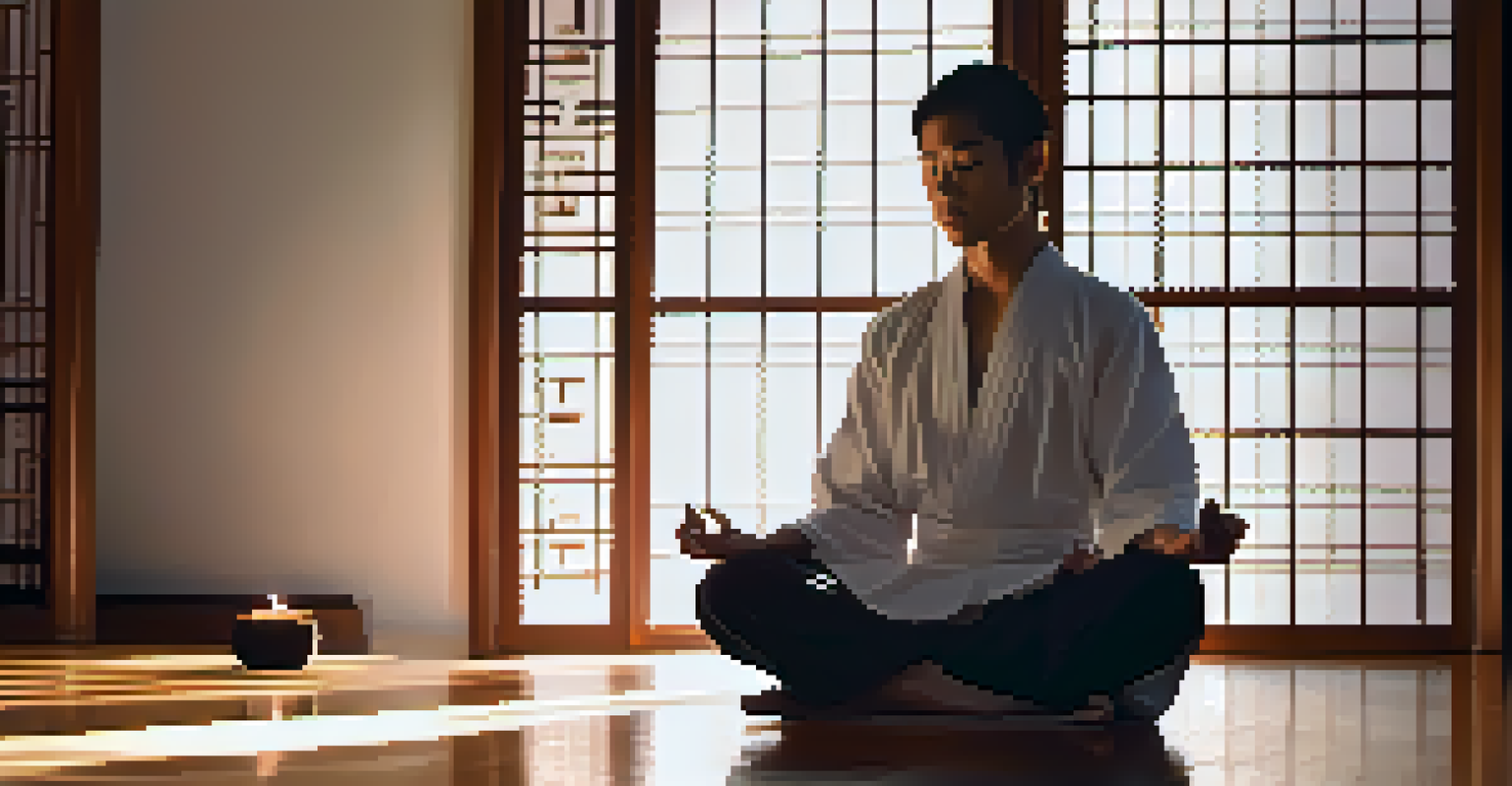Martial Arts Techniques for Enhancing Rehabilitation Outcomes

Understanding Martial Arts in Rehabilitation Context
Martial arts is often seen as a way to learn self-defense or improve fitness. However, its principles can also play a significant role in rehabilitation. By incorporating martial arts techniques, patients can not only regain physical strength but also enhance mental resilience.
Martial arts is not about fighting; it's about building character and resilience.
The core philosophies of martial arts, such as discipline and focus, can motivate individuals during their recovery journey. This dual benefit—physical and mental—makes martial arts an excellent adjunct to traditional rehabilitation methods.
In essence, martial arts can transform rehabilitation from a solely physical endeavor into a comprehensive approach that fosters both body and mind, promoting overall well-being.
Key Techniques for Physical Rehabilitation
Specific martial arts techniques, like tai chi, focus on gentle movements and balance. These practices are particularly beneficial for patients recovering from injuries as they help improve flexibility and coordination. The slow, controlled motions minimize stress on the body while promoting healing.

Another technique, such as kickboxing, can provide a high-intensity workout that enhances cardiovascular health. This can be particularly helpful for patients looking to regain strength and endurance after surgery or prolonged inactivity.
Martial Arts Boosts Rehabilitation
Incorporating martial arts techniques can enhance both physical strength and mental resilience during the recovery process.
By tailoring these techniques to individual needs, physical therapists can create personalized rehabilitation plans that incorporate martial arts, making recovery not only effective but also engaging.
Mental Benefits of Martial Arts in Recovery
Beyond physical rehabilitation, martial arts offers significant mental health benefits. The practice encourages mindfulness, which can help patients manage pain and anxiety during recovery. Techniques like meditation and controlled breathing can calm the mind and foster a positive outlook.
The body achieves what the mind believes.
Additionally, martial arts training often involves setting personal goals, which can boost self-esteem and motivation. Achieving these goals reinforces a sense of accomplishment, crucial for maintaining a positive attitude in rehabilitation.
Overall, the mental resilience built through martial arts can empower individuals to face the challenges of recovery with confidence and determination.
Building Confidence Through Martial Arts
Learning martial arts can significantly enhance a patient’s confidence. As individuals master techniques and see improvements in their physical abilities, they often feel a renewed sense of self-efficacy. This is especially important for those who may have faced physical limitations due to injury.
The structured environment of martial arts classes fosters a sense of community and support. Patients are encouraged by peers and instructors, creating a safe space to practice and grow.
Tailored Techniques Enhance Recovery
Specific martial arts practices, like tai chi and kickboxing, can be customized to meet individual rehabilitation needs, making recovery both effective and engaging.
This supportive atmosphere not only helps in developing skills but also reinforces the belief that they can overcome their rehabilitation challenges.
Incorporating Martial Arts into Traditional Rehab
Integrating martial arts techniques into traditional rehabilitation involves collaboration between physical therapists and martial arts instructors. This partnership can lead to innovative approaches tailored to the unique needs of each patient. The combination of expertise ensures a well-rounded rehabilitation experience.
For instance, a physical therapist might recommend specific martial arts exercises that align with the patient's rehabilitation goals, such as improving joint mobility or strengthening core muscles. This blend of disciplines allows for a more dynamic and engaging recovery process.
Ultimately, it's about finding the right balance between traditional methods and martial arts techniques to create a holistic rehabilitation plan.
Success Stories: Real-Life Impact of Martial Arts
Many patients have shared inspiring stories about their journeys through rehabilitation with martial arts. For example, some have reported regaining mobility and strength after incorporating tai chi into their routines. These success stories highlight the effectiveness of martial arts as a complementary therapy.
Another common theme is the improvement in mental health. Patients often describe a newfound sense of peace and confidence that stems from martial arts practice. This shift in mindset can be a game-changer in their overall recovery.
Mindfulness and Confidence Growth
Martial arts fosters mindfulness and personal goal setting, which can significantly improve self-esteem and mental health during rehabilitation.
These real-life examples serve as powerful testimonies to the benefits of martial arts, encouraging others to explore these techniques as part of their rehabilitation journey.
Getting Started with Martial Arts for Rehabilitation
If you're considering martial arts as part of your rehabilitation, the first step is to consult with your healthcare provider. They can help assess your needs and determine if martial arts is a suitable option for your recovery plan.
Once you receive the green light, look for classes specifically designed for rehabilitation or those that cater to beginners. Many martial arts studios offer adaptive programs that take individual limitations into account.

Starting slowly and focusing on fundamental techniques will help you build confidence and skill over time. Remember, the journey is as important as the destination, so enjoy the process of learning and healing!